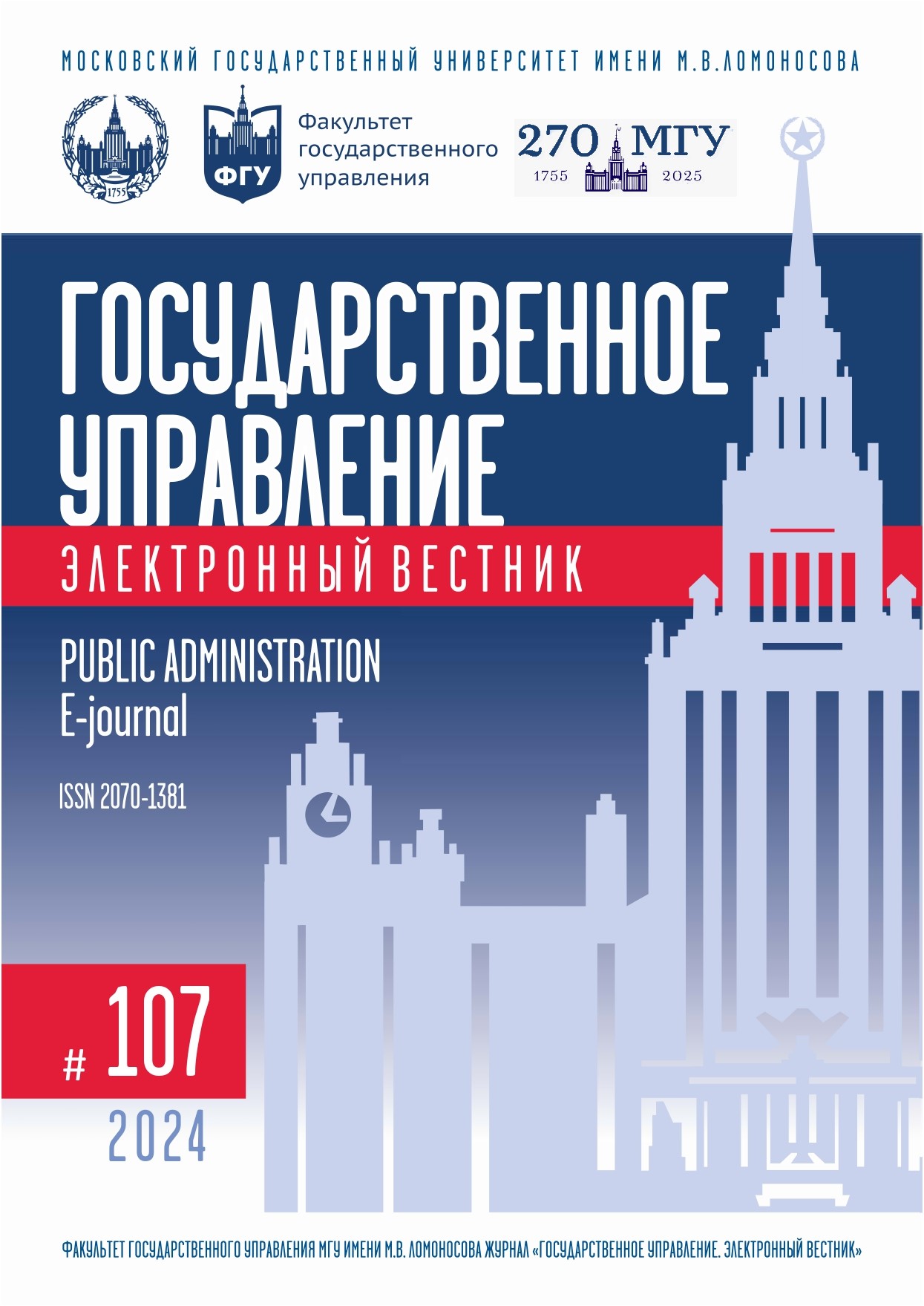К вопросу о классификации институциональной ренты как социально-экономической категории рентных отношений: методологический аспект
DOI:
https://doi.org/10.24412/2yfwst59Keywords:
Classification, institutions, institutional rent, social relations, socio-economic category, competitive advantages.Abstract
In scientific research, the use of socio-economic categories allows analyzing and identifying trends or dependencies for decision-making on developing government response measures to socio-economic risks and challenges. In this study, institutional rent is considered as a socio-economic category reflecting the most essential properties and connections of rent relations, which is formed and implemented in the process of organizational interaction between subjects of rent relations in the production, consumption and redistribution of property rights to socially significant goods. The presence of an institutional environment for socio-economic development allows subjects of rent relations to use institutions to reduce transaction costs of their organizational behaviour. Under these conditions, an institution becomes a resource for rent relations, and the ability to reduce organizational costs through the effective use of institutional factors, an independent competitive advantage, allowing subjects of rent relations to extract monopoly income in the form of institutional rent. The use of classification as a general scientific method for systematizing knowledge about institutional rent allows us to expand the theoretical basis for research into rent relations and propose new directions for using institutional tools for its analysis, which determines the relevance of this study. The aim of the study is to clarify the methodological features of the classification of institutional rent as a socio-economic category of rent relations. The paper clarifies the definition of institutional rent and substantiates the methodological features of its classification, the criterion of which is the ability of subjects of rent relations to form their competitive advantages through the use of formal institutions and informal restrictions in the process of reducing various types of transaction costs. The article proposes a general classification of formal institutional rent by the level of hierarchy of formal institutions, and informal institutional rent by the type of informal restrictions created by the institutions of family, culture, religion and education.
References
Акулич М.М., Капалин А.М. Религия как социальный институт // Вестник Челябинского государственного университета. 2008. № 32. С. 8–15.
Баглиева А.З. Понятие «Менталитет»: особенности определения // Система ценностей современного общества. 2008. № 4. С. 25–29.
Бердникова А.Ю. Социальный институт культуры: понятие, процесс формирования, признаки, структура, функции // Молодой ученый. 2019. № 17(255). С. 191–193.
Даниленко Л.Н. Рента как категория современной экономической науки // Экономический анализ: теория и практика. 2013. № 8(311). С. 20–31.
Дмитриев Н.Д., Зайцев А.А., Кичигин О.Э. О методологических особенностях классификации институциональной ренты как социально-экономической категории в исследованиях рентных отношений // Международный сельскохозяйственный журнал. 2024. № 3(399) С. 352–356. DOI: 10.55186/25876740_2024_67_3_352
Дмитриев Н.Д., Зайцев А.А., Родионов Д.Г. Модель взаимосвязи между интеллектуальным капиталом и формированием рентного дохода промышленных предприятий // Вестник академии знаний. 2023. № 4. С. 92–97.
Епремян Т.В., Абрамова М.Э. Семья как социальный институт: понятие и ценностные ориентиры // Экономика. Социология. Право. 2022. № 4(28). С. 64–69. DOI: 10.22281/2542-1697-2022-01-04-64-69
Кичигин О.Э. Институциональная среда и рентные отношения ТЭК как источник формирования региональной конкурентоспособности // Экономика и предпринимательство. 2016. № 6(71). С. 906–911.
Кичигин О.Э. Роль доверия в общественных отношениях: институциональный аспект // Государственное управление. Электронный вестник. 2022. № 93. С. 65–80. DOI: 10.24412/2070-1381-2022-93-65-80
Кичигин О.Э., Зайцев А.А. К вопросу о необходимости разработки концепции по рентному регулированию ресурсного потенциала регионального развития // Вестник Алтайской академии экономики и права. 2021. № 1–2. С. 156–165. DOI: 10.17513/vaael.1583
Сагитова А.Ф. Развитие понятия «Рентные отношения» в экономической науке // Вестник Челябинского государственного университета. 2015. № 11(366). С. 13–22.
Kichigin O., Zaytsev A., Dmitriev N. Role and Place of Institutional Capacity in Socio-Economic Development // International Journal of Professional Business Review. 2023. Vol. 8. Is. 10. DOI: 10.26668/businessreview/2023.v8i10.3160
North D. Institutions and Economic Growth: An Historical Introduction // World Development. 1989. Vol. 17. Is. 9. P. 1319–1332. DOI: 10.1016/0305-750X(89)90075-2
North D. Institutions, Institutional Change and Economic Performance. Cambridge: Cambridge University Press, 1990.
Zaytsev A., Dmitriev N., Kichigin O. Diagnostics of Regions Resource Potential in the Context of Socio-Economic Development // International Journal of Professional Business Review. 2023. Vol. 8. Is. 10. DOI: 10.26668/businessreview/2023.v8i10.3162
Downloads
Published
Similar Articles
- Timur O. Tarba, Instruments of Interaction between State Corporations and Subjects of the Russian Federation , Public Administration. E-journal (Russia): No. 109 (2025)
- Dmitriy P. Arkalov, Customer-Centricity as a Vector of Trust Economy , Public Administration. E-journal (Russia): No. 106 (2024)
- Valeriya E. Gavrilova, Population Health as a Nationally Significant Resource in the Context of Expensive Money , Public Administration. E-journal (Russia): No. 111 (2025)
- Yuriy Y. Petrunin, Natella Z. Nuralieva, Trust in Generative Artificial Intelligence as a Mirror of Institutional Trust , Public Administration. E-journal (Russia): No. 113 (2025)
- Oleg E. Kichigin, Competition and Cooperation: Two Strategies for Socio-Economic Development of Society and State (Institutional Approach) , Public Administration. E-journal (Russia): No. 91 (2022)
- Antonina V. Selezneva, Azamat Kh. Tomaev, Alexandra A. Khatkevich, Youth Political Leadership in Institutional Dimension: Shaping Environment and Development Features , Public Administration. E-journal (Russia): No. 98 (2023)
- Andrey A. Vetrenyuk , Typologization of Regional Sustainability in the ESG Framework: A Matrix-Based Approach to Strategic Models of Spatial Development , Public Administration. E-journal (Russia): No. 113 (2025)
- Vladimir D. Milovidov, Civilization Approach in Economic Researches , Public Administration. E-journal (Russia): No. 104(S) (2024): The Concept of Russian Civilization: New Trends in Scientific Discussions
- Alexander A. Kovalenko, Developing the Model of Social Controlling of Enterprise’s Innovative Activity , Public Administration. E-journal (Russia): No. 111 (2025)
- Ludmila K. Matveeva, Ilya I. Nikiforov, Some Results of Far Eastern Federal District Social and Economic Development in 2012–2020 , Public Administration. E-journal (Russia): No. 87 (2021)
You may also start an advanced similarity search for this article.




